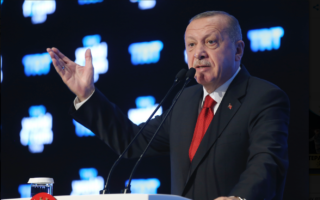Productive procrastination

Kyriakos Mitsotakis and Recep Tayyip Erdogan “instructed their foreign ministers to examine whether conditions are suitable for discussions to begin on the delineation of the continental shelf and the exclusive economic zone,” Foreign Minister George Gerapetritis said, following the two leaders’ meeting. In other words, the two ministers will discuss whether talks can begin which might lead to some form of agreement for their countries to submit the issue to the International Court. This does not mean that any discussion that starts will lead to The Hague. And there, too, we don’t know where proceedings will go. There is also the likelihood that the two ministers will determine that conditions right now are not “suitable.” In short, we are now before the beginning of the beginning of a possible negotiation. To underline – without saying so overtly – that this situation is useful rather than problematic, Gerapetritis continued with a comment on the Mitsotakis-Erdogan meeting. “It confirmed the good climate,” between the two countries, he said. It is necessary today, more than ever… to have relations of understanding and good neighborliness.”
Procrastination suits both sides. In Greece, it allows many to keep believing that things will turn out as we want, as long as the “forces of surrender” do not give in to Ankara’s pressure. For Turkey, the murky situation allows it to protest that it is being denied its rights, while making outlandish demands (portraying half the Aegean as part of its “Blue Homeland”) and acting unilaterally, creating faits accomplis (the Turkish-Libyan memorandum). As long as Ankara operates in this way, it is even more difficult for any Greek government to enter a substantial dialogue on these thorniest of issues. In this way, Greek governments avoid being accused of making any compromises – of curtailing expectations – which any agreement would demand. Turkish governments, on the other hand, expand their own expectations unobstructed, with new demands. This benefits Turkey, but it also stokes a dangerous nationalism inside it.
Coming down from high expectations to the lowdown reality of negotiations will have an immediate political cost, as the “patriotic fronts” are always on high alert. So, uncertainty may reign, projects and cooperation may be obstructed, but no one gets blamed for signing any “treasonous” agreement. And this leaves a little room for some tenuous “understanding” between two neighbors.





